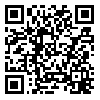دوره 22، شماره 3 - ( 7-1404 )
جلد 22 شماره 3 صفحات 33-29 |
برگشت به فهرست نسخه ها
Download citation:
BibTeX | RIS | EndNote | Medlars | ProCite | Reference Manager | RefWorks
Send citation to:



BibTeX | RIS | EndNote | Medlars | ProCite | Reference Manager | RefWorks
Send citation to:
Mousavi M S, Keshavarz F, Mirzaei Z, Yosefpour Z, Malekzadeh M, Rastian M L. Relationship between critical thinking and moral distress in nurses: A cross-sectional study. J Res Dev Nurs Midw 2025; 22 (3) :29-33
URL: http://nmj.goums.ac.ir/article-1-1912-fa.html
URL: http://nmj.goums.ac.ir/article-1-1912-fa.html
Relationship between critical thinking and moral distress in nurses: A cross-sectional study. Journal of Research Development in Nursing and Midwifery. 1404; 22 (3) :29-33
چکیده: (2081 مشاهده)
Background: Nurses, as one of the key pillars of the healthcare system, constantly face complex ethical challenges that can impact the quality of care provided and their mental well-being. Enhancing critical thinking skills in this group may help them analyze ethical issues more effectively and make better decisions, ultimately reducing moral distress. Therefore, this study aimed to determine the relationship between critical thinking and moral distress in nurses.
Methods: This cross-sectional study involved the selection of 342 nurses from educational hospitals affiliated with Yasuj University of Medical Sciences in Iran in 2024, utilizing a systematic probability sampling method. Participants were required to have a minimum of one year of clinical experience and to be currently employed in hospital departments, ensuring a relevant background for the study. Data collection was conducted using the California Critical Thinking Skills Test – Form B and the modified 18-item Hamric Moral Distress Scale. The findings were analyzed employing both descriptive and inferential statistical tests, including the Kolmogorov–Smirnov test for normality, Pearson correlation, and multiple linear regression, which were used to examine relationships between variables utilizing SPSS version 27.
Results: The mean age of participants was 43.33 ± 10.7 years; 221 individuals (64.40%) were female, and 127 persons (37.10%) had 1 to 5 years of work experience. Nurses had an average critical thinking score of 21.25 ± 8.64 and a moral distress score of 116.08 ± 50.82. A significant negative correlation was found between critical thinking and moral distress scores (r = -0.66, p = 0.001). A multiple regression model significantly predicted moral distress, explaining 63% of its variance (R² = 0.628, F = 29.787, p = 0.001). Six predictors were significant. Overall critical thinking was the strongest negative predictor (β = -0.396, p = 0.001, 90% CI [-2.65, -1.69]). The analysis, inference, and induction components were also significant negative predictors. In contrast, the deduction component (β = 0.197, p = 0.029, 90% CI [0.24, 4.39]) and place of residence (β = 0.072, p = 0.037, 90% CI [1.01, 32.60]) were positive predictors of moral distress.
Conclusion: The findings suggest that as critical thinking skills improve, moral distress tends to decrease among nurses. Therefore, it is recommended to implement educational programs aimed at enhancing critical thinking skills in nursing practice, which could potentially alleviate feelings of moral distress.
Methods: This cross-sectional study involved the selection of 342 nurses from educational hospitals affiliated with Yasuj University of Medical Sciences in Iran in 2024, utilizing a systematic probability sampling method. Participants were required to have a minimum of one year of clinical experience and to be currently employed in hospital departments, ensuring a relevant background for the study. Data collection was conducted using the California Critical Thinking Skills Test – Form B and the modified 18-item Hamric Moral Distress Scale. The findings were analyzed employing both descriptive and inferential statistical tests, including the Kolmogorov–Smirnov test for normality, Pearson correlation, and multiple linear regression, which were used to examine relationships between variables utilizing SPSS version 27.
Results: The mean age of participants was 43.33 ± 10.7 years; 221 individuals (64.40%) were female, and 127 persons (37.10%) had 1 to 5 years of work experience. Nurses had an average critical thinking score of 21.25 ± 8.64 and a moral distress score of 116.08 ± 50.82. A significant negative correlation was found between critical thinking and moral distress scores (r = -0.66, p = 0.001). A multiple regression model significantly predicted moral distress, explaining 63% of its variance (R² = 0.628, F = 29.787, p = 0.001). Six predictors were significant. Overall critical thinking was the strongest negative predictor (β = -0.396, p = 0.001, 90% CI [-2.65, -1.69]). The analysis, inference, and induction components were also significant negative predictors. In contrast, the deduction component (β = 0.197, p = 0.029, 90% CI [0.24, 4.39]) and place of residence (β = 0.072, p = 0.037, 90% CI [1.01, 32.60]) were positive predictors of moral distress.
Conclusion: The findings suggest that as critical thinking skills improve, moral distress tends to decrease among nurses. Therefore, it is recommended to implement educational programs aimed at enhancing critical thinking skills in nursing practice, which could potentially alleviate feelings of moral distress.
| بازنشر اطلاعات | |
 |
این مقاله تحت شرایط Creative Commons Attribution-NonCommercial 4.0 International License قابل بازنشر است. |




